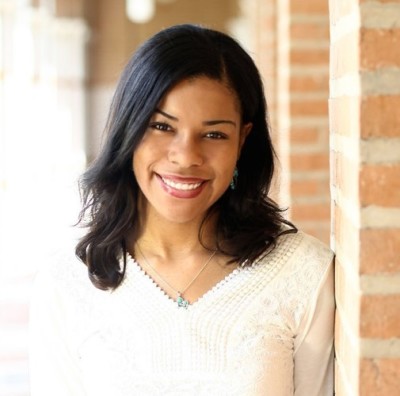Have you ever felt disappointed in God?

Have you ever felt disappointed? Even more than that, have you ever felt disappointed in God? I have. Perhaps like you, there have been circumstances in my life that I expected to turn out one way, but they turned out a completely different way. The gap between our expectations and our reality can be heartbreaking. I’m not talking about those Level 1 disappointments, like when you expect to order your favorite meal at a restaurant, but you learn they don’t have it. (Although, if you’re hangry, that can be a Level 1.5 disappointment!) But I’m talking about those deep disappointments:
- You expected God to heal a loved one, but they died
- You expected good news from your doctor, but the report was troubling
- You expected your parents to stay together, but your dad left or they divorced
- You expected to get into a certain school or job, but you were rejected
- You expected to be married by now, but you’re still single with no good prospects
- You expected your marriage to last till death do you part, but you got divorced
- You expected a baby, but you lost a baby (or babies), or you’re unable to conceive
- You expected to leave this earth before your child did, but he or she left before you
- You expected to be in a certain place financially by now, but you are nowhere close
- You expected a deep desire or dream to come to pass, but it appears impossible now
- Deep disappointments
And for those of us who believe in God and His Word, these disappointments can sometimes feel more hurtful, because we know God could have done something to prevent our pain. He could have changed things. He could have saved our loved one or our marriage or our dream. He could have, but He didn’t. What do we do with these feelings? What do we do when it seems like God didn’t come through? If you’ve ever had any of these feelings or thoughts, as I have, we are in great company. There have been many great followers of Christ who have been confused by His methods at times, and I’m going to briefly highlight one of them.
John the Baptist was Jesus’ cousin, and he is often referred to as the forerunner of Jesus. In more modern terms, he was Jesus’ hype man! He told people that Jesus was coming, and then when Jesus came, John basically said, “There He is, go follow Him!” So if anyone should have had rock-solid confidence in Jesus’ identity, it should have been John. Yet, in Matthew 11, we find a deeply disappointed John, who is contending with one of disappointment’s close relatives — doubt.
2 When John, who was in prison, heard about the deeds of the Messiah, he sent his disciples 3 to ask him, “Are you the one who is to come, or should we expect someone else?”
4 Jesus replied, “Go back and report to John what you hear and see: 5 The blind receive sight, the lame walk, those who have leprosy are cleansed, the deaf hear, the dead are raised, and the good news is proclaimed to the poor. 6 Blessed is anyone who does not stumble on account of me.”
7 As John’s disciples were leaving, Jesus began to speak to the crowd about John: “What did you go out into the wilderness to see? A reed swayed by the wind? 8 If not, what did you go out to see? A man dressed in fine clothes? No, those who wear fine clothes are in kings’ palaces. 9 Then what did you go out to see? A prophet? Yes, I tell you, and more than a prophet. 10 This is the one about whom it is written:
“‘I will send my messenger ahead of you, who will prepare your way before you.’11 Truly I tell you, among those born of women there has not risen anyone greater than John the Baptist;
Mathew 11:2-11(a)
I believe this passage of Scripture should be incredibly encouraging to you and me. As we noted earlier, John was Jesus’ very own cousin and forerunner. He was the first to publicly declare Jesus’ identity. So if he found himself in a place of deep disappointment that led to questioning Jesus, we shouldn’t feel bad about ourselves if we get to that place, too. What should be even more encouraging, though, is Jesus’ response. Did you notice that Jesus didn’t get mad at John? In fact, He gave John a great compliment when He spoke of him. Instead of rebuking John, He encouraged him to think outside of his disappointment and focus on His (Jesus’) activity. He invited John to replace what he thought God was going to do with what God was actually doing. In essence, Jesus invited John to focus on His nature rather than his circumstances.
If we’re honest, we’ll have to admit that we sometimes view God’s nature through the lens of our circumstances rather than viewing our circumstances through the lens of God’s nature. When life is good, it’s easy to believe God is good. But when life hurts, it can be harder to still view God as good. Our faith can grow exponentially on the heels of disappointment, if we put our pain in God’s hands. But the opposite is also true — we can fall into deep disillusionment and despair, and we can drift away from God, if the enemy has his way. This is precisely why we must have a game plan for when disappointment strikes. Here are a few tips for us to consider:
- We should give ourselves permission to be human and feel our emotions. We may feel heartbroken, lost, forgotten, abandoned, or even betrayed by God. These feelings are real, and we shouldn’t pretend they don’t exist. We can camp out in this emotional place, but let’s not build a house there. Let’s cry, grieve, seek professional help if we need to, and keep moving.
- We should take our hurt to God instead of falling away from Him. It can be hard to pray when we’re hurting. The best we may be able to do for a while is just get into His presence and say, “I’m hurting, Father.” He’s not afraid of our emotions or our questions.
- We should surrender our expectations to God. Remember, our disappointment arises from the gap between our expectations and our reality. We sometimes expect things God did not promise. Sometimes we misapply the promises of God to our circumstances. If we’re going to make it on this Christian journey, we must learn to trust God — even when we don’t understand. We wouldn’t need faith if we knew everything.
Leah Holder Green left a promising legal career to dedicate her gifts to full-time ministry. She graduated from the University of Texas at Austin, Phi Beta Kappa, she earned her juris doctorate (J.D.) from the University of Texas School of Law, and she is currently pursuing a Master of Arts in Christian Education degree at Dallas Theological Seminary. Leah is married to the love of her life, Clarence “Champ” Green, and they have recently welcomed their first child — a beautiful girl named Caylen Joy.




























